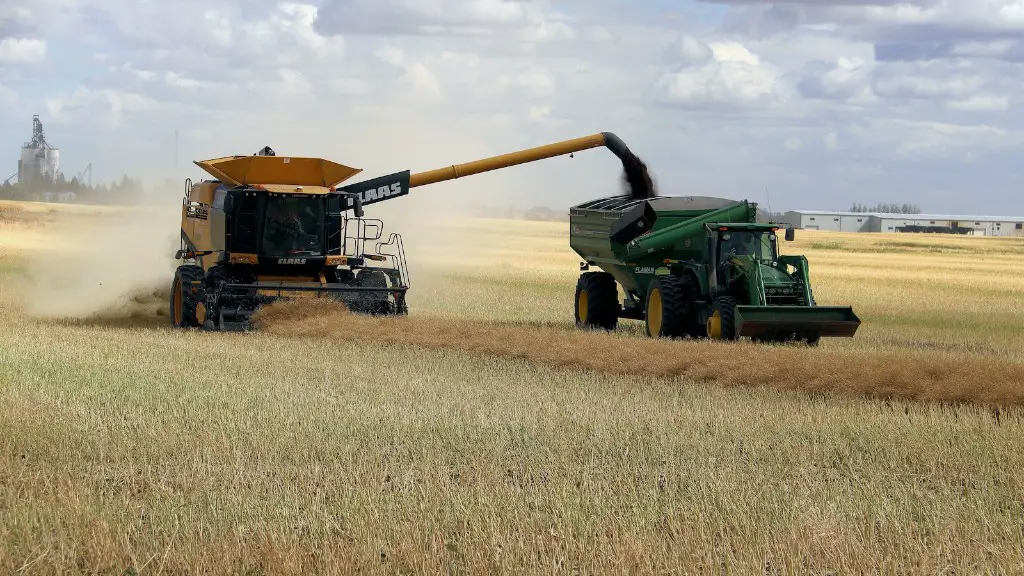In recent years, the field of genetic engineering has expanded rapidly, providing new methods for improving crops and animals. This technology can be used to create plants that are resistant to herbicides or pests, or to produce crops with higher yields. Additionally, genetic engineering can be used to create animals that are resistant to disease or that grow more quickly. These advances can benefit both agriculture and industry by increasing yields and reducing losses to pests and disease.
Genetic engineering has the potential to benefit agriculture and industry in a number of ways. For example, it could be used to develop crops that are more resistant to pests and diseases, or that require less water or fertiliser. It could also be used to produce food ingredients with improved nutritional value, or to create new industrial enzymes or chemicals.
How can genetic engineering benefit the industry?
The techniques of genetic engineering have been instrumental in the development of a number of medically important products, including human insulin, human growth hormone, and hepatitis B vaccine. In addition, the techniques have been used to develop genetically modified organisms such as disease-resistant plants.
Genetic engineering is the process of manipulating genes in a living organism to change its characteristics. This can be done to help improve the quality of crops, make them more resistant to pests and diseases, or to produce new products.
There are many potential benefits of using genetic engineering in agriculture and industry. For example, it could allow us to produce more food with fewer resources, create new and improved products, or reduce the environmental impact of manufacturing processes.
However, there are also some risks associated with this technology. For instance, there is the potential for unintended consequences when altering genes, and there is also public concern about the safety of genetically modified organisms (GMOs).
Overall, genetic engineering holds great promise for improving the quality of our food and products, but it is important to carefully consider the risks and benefits before moving forward with this technology.
How has genetic engineering been used in the field of agriculture
Genetic engineering is a process by which scientists can take a beneficial gene from one organism and transfer it into another. This process can be used to create crops with desired traits, such as resistance to insects or drought. Modern technology has made this process much easier and more precise than it was in the past.
The advantages of genetic engineering are many and varied. One of the most significant advantages is that it allows for a faster growth rate. This is because specific traits can be developed that allow for greater yields. Additionally, new products can be created through genetic engineering, which can be of great benefit to society. Additionally, risks to the local water supply are reduced when genetic engineering is used. This is because it is a scientific practice that has been in place for millennia.
What are examples of genetic engineering in industry?
Genetic engineering is a process by which genes are added or removed from an organism to produce a desired trait. This process can be used to produce cancer therapies, brewing yeasts, genetically modified plants and livestock, and more.
One of the most significant benefits of genetic engineering in agriculture is increased crop production. Scientists can use genetic engineering to increase crop yields, lower food costs, improve food quality, food security, and medicinal value. This is a cutting-edge technology that is rapidly evolving and has the potential to transform the agricultural industry.
Which is a potential benefit of genetic engineering in agriculture quizlet?
Fertilizers, pesticides, and herbicides are essential for crop production. However, their use has been reducing due to the introduction of more environmentally friendly methods of crop production. This has led to a reduction in the amount of these chemicals that are released into the environment.
Genetic engineering has the potential to revolutionize agriculture, making it more efficient and environmentally sustainable. There are three main benefits to this technology:
1) Crops can be made more resilient to pests and diseases, leading to higher yields and reduced losses for farmers.
2) Crops can be tailored to grow in more difficult or marginal environments, opening up new areas for agriculture.
3) Plants can be genetically modified to produce valuable compounds or nutrients, such as “golden rice” which is enriched with Vitamin A.
This technology is still in its early stages, but has huge potential to improve the sustainability and efficiency of our food production system.
What are some examples of genetic engineering in agriculture
The use of GMO crops to make ingredients for American foods is a controversial topic. Some people believe that these crops are safe and pose no threat to human health, while others believe that they may be harmful. There is currently no definitive answer as to whether or not GMO crops are safe for human consumption. However, it is important to note that a few fresh fruit and vegetables are available in GMO varieties, so it is possible that you may be consuming them without knowing it. If you are concerned about consuming GMO ingredients, you can check food labels for information about whether or not they contain GMO crops.
It has been proved that biochar has the potential to improve both the quantity and quality of crops. In terms of yield, biochar has been shown to increase crop yields by up to 15%. This is because biochar helps to improve the soil structure and fertility, as well as increasing the water and nutrient retention capacity of the soil. In terms of quality, biochar has been shown to improve the nutrient content of crops, as well as reducing the levels of toxins and heavy metals.
What are the 4 uses of genetic engineering?
There is no one-size-fits-all answer to this question, as the applications of genetic engineering vary widely depending on the specific context in which it is being used. However, some common applications of genetic engineering include medicine (e.g. the development of new drugs and treatments), research (e.g. the study of gene function), industry (e.g. the production of new chemicals and materials), and agriculture (e.g. the development of new crop varieties).
GMO crops have been shown to help reduce the amount of pesticides needed for farming. This is because the crops are engineered to be resistant to pests and herbicides. This means that farmers can use less spray pesticides and herbicides, which reduces the amount of these chemicals that end up on crops.
What are the top 3 advantages of genetic engineering humans
Genetic engineering has the potential to solve a lot of problems that humanity currently faces. With the ability to modify genes, we can create strains of crops that are resistant to pests and diseases, meaning that we can increase food production and reduce the amount of food that is wasted. Additionally, we can create animals that grow faster and require less food, which would help to reduce the impact of livestock farming on the environment. In terms of human health, genetic engineering can be used to create new medicines and treatments for diseases, and to eliminate genetic defects from unborn children. In theory, this could mean that we could eventually eradicate all diseases, and that everyone would have the potential to live a long and healthy life.
GM foods are controversial, with some people arguing that they are unsafe and environmental groups concerned about their potential impact on ecosystems. However, there is scientific evidence to suggest that GM foods are no more risky than conventional foods and may offer some benefits.
What are some of the benefits of biotechnology in agriculture?
Biotech crops are those that have been genetically modified to improve one or more traits. These crops can make farming more profitable by increasing crop quality and may in some cases increase yields. The use of some of these crops can simplify work and improve safety for farmers. This allows farmers to spend less of their time managing their crops and more time on other profitable activities.
Genetic engineering holds a lot of promise for the future. With it, we would be able to study gene functions and potentially create vaccines and life-saving drugs. We may even be able to find a cure for cancer. The possibilities are endless and the potential benefits are great. We should continue to explore this technology so that we can realize its full potential.
Final Words
There are many ways that genetic engineering can benefit agriculture and industry. For example, genetic engineering can be used to improve the yield of crops, to make plants more resistant to pests and diseases, and to improve the quality of food products. Additionally, genetic engineering can be used to create new materials and products, and to improve the efficiency of manufacturing processes.
One potential benefit of genetic engineering is that crops could be modified to be more resistant to pests and diseases. This would decrease the need for pesticides and other chemicals, which can be harmful to the environment. Additionally, crops could be engineered to grow in harsher conditions, such as in areas with poor soil or little water. This could allow for food production in areas that are currently unable to support agriculture. Industry could also benefit from genetic engineering, as new and improved materials could be created. For example, stronger and more durable materials could be produced for building construction, and new medical treatments could be developed. Ultimately, genetic engineering has the potential to benefit both agriculture and industry in a variety of ways.





